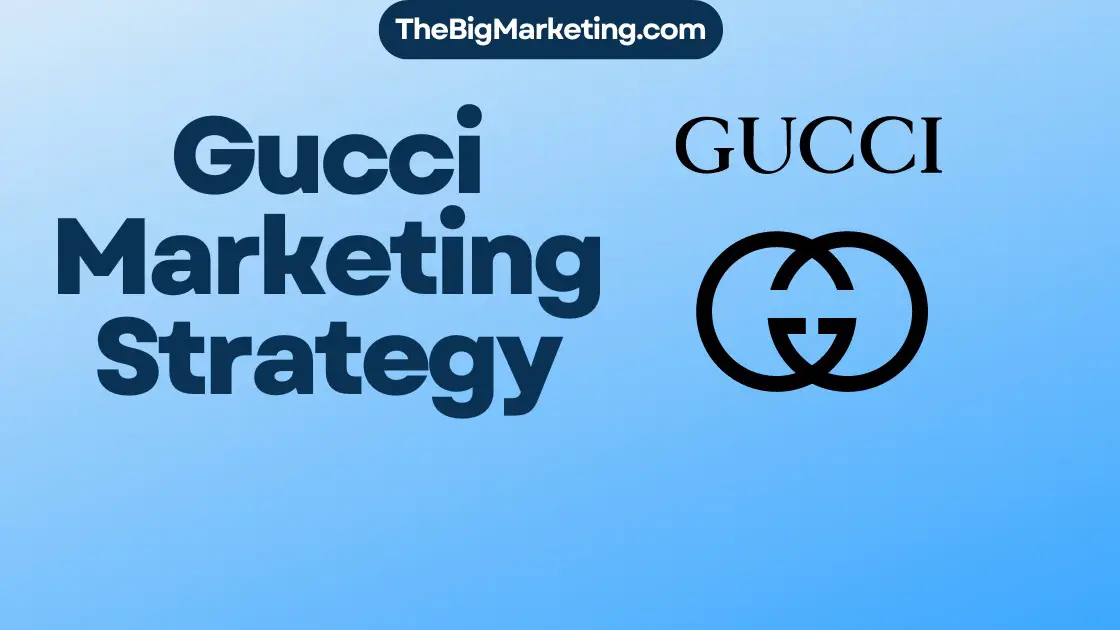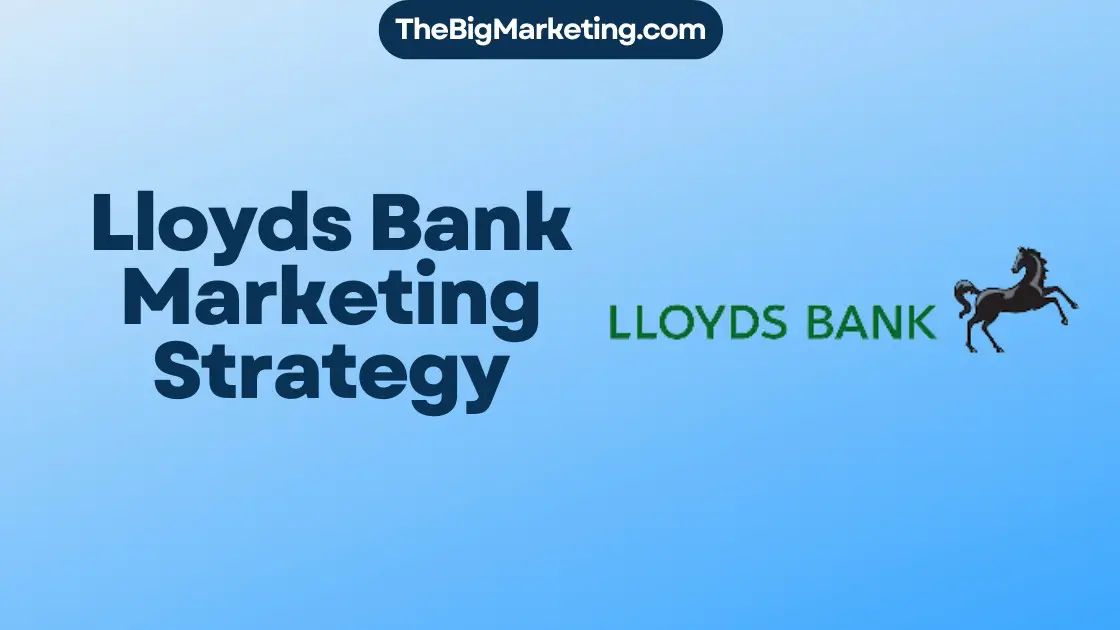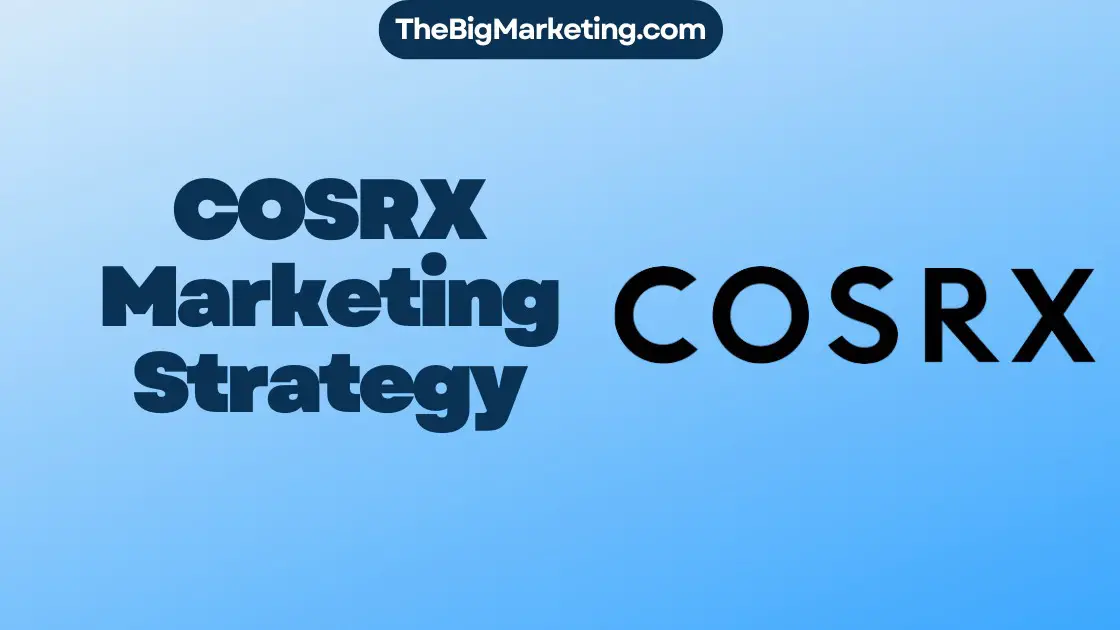When preparing for an interview in the field of marketing communications, it’s crucial to arm yourself with a comprehensive understanding of potential questions that may be posed by your future employers. This preparation not only boosts your confidence but also significantly enhances your chances of making a memorable impression. The landscape of marketing communications is both vast and intricate, requiring a blend of creativity, strategic thinking, and technical know-how. To navigate this successfully, one must be well-prepared with insightful answers that reflect their expertise and passion for the industry.
In this context, we have compiled a list of the top 33 marketing communications consultant interview questions and answers. This guide aims to provide candidates with a solid foundation to articulate their experiences, skills, and vision for the role they are aspiring to secure. From questions probing your strategic approach to handling crisis communications to those that explore your creative process, this collection is designed to encompass the breadth of knowledge and competencies relevant to a career in marketing communications. Whether you’re a seasoned professional or new to the field, these questions will help you prepare for your next interview with confidence.
Marketing Communications Consultant Interview Preparation Tips
| Focus Area | Details | Tips |
|---|---|---|
| Understanding of the Industry | Have a deep understanding of the marketing and communications industry, including current trends and challenges. | Research extensively on the latest trends in marketing, digital communications, and the industry you’re interviewing for. Keep abreast of any recent case studies or successful campaigns. |
| Technical Skills | Be familiar with marketing tools and software that are essential in the field. | Learn the basics of popular marketing software like HubSpot, Google Analytics, and social media management tools. Understand their functionalities and be prepared to discuss how you’ve used them or plan to. |
| Portfolio Review | Prepare your portfolio showcasing your most successful campaigns or projects. | Ensure your portfolio is up-to-date, clearly organized, and highlights your role and achievements in each project. Tailor it to the job you’re applying for, emphasizing relevant work. |
| Communication Skills | Demonstrate your ability to communicate effectively, both in writing and verbally. | Practice your interview responses to ensure they’re clear and concise. Prepare examples that showcase your communication skills, such as successful presentations or campaigns you’ve led. |
| Problem-Solving Abilities | Highlight your ability to solve problems creatively and efficiently. | Think of specific challenges you’ve faced in your career and how you overcame them. Be prepared to discuss these in detail, focusing on your thought process and the results. |
| Knowledge of Marketing Strategies | Show your understanding of various marketing strategies and how to implement them. | Be ready to discuss different marketing strategies, such as content marketing, SEO, SEM, and social media marketing. Talk about how you’ve successfully applied these strategies in past roles. |
| Cultural Fit | Demonstrate that your values and work ethic align with the company’s culture. | Research the company’s mission, values, and work culture. Prepare to discuss how your personal and professional values align with theirs and how you can contribute to their team. |
- Prepare Questions: Always have a list of questions ready to ask the interviewer. This shows your interest in the role and the company.
- Follow-Up: After the interview, send a thank-you email summarizing your interest and how you can contribute to the company.
1. Can You Walk Me Through Your Experience in Marketing Communications?
Tips to Answer:
- Highlight specific projects or campaigns you’ve worked on, mentioning the strategies you implemented and the results achieved.
- Talk about your adaptability and continuous learning approach in staying current with industry trends and tools.
Sample Answer: In my ten years in marketing communications, I’ve spearheaded several successful campaigns, notably increasing brand visibility for a tech startup by 120% in one year. My approach combines creative storytelling with data-driven strategies, ensuring content resonates with the target audience while achieving measurable outcomes. I’ve consistently adapted to new trends, integrating digital and social media platforms to broaden campaign reach. My commitment to professional growth led me to complete a digital marketing certification last year, further enriching my skill set.
2. What Do You Consider The Most Important Skills For A Marketing Communications Consultant?
Tips to Answer:
- Highlight specific skills that are relevant to marketing communications such as strategic thinking, creativity, excellent written and verbal communication, and the ability to analyze data.
- Share examples from past experiences where you demonstrated these skills effectively.
Sample Answer: In my view, strategic thinking and creativity top the list of essential skills for a marketing communications consultant. Being able to develop innovative strategies that resonate with the target audience requires both analytical and creative thinking. For instance, in my previous role, I spearheaded a campaign that leveraged user-generated content, substantially increasing engagement. This success was partly due to my strategic planning and ability to think outside the box. Additionally, having strong communication skills has enabled me to convey complex ideas clearly and persuasively, whether in writing or speaking, ensuring messages are effectively received.
3. How Do You Stay Up-To-Date With The Latest Trends And Best Practices In Marketing Communications?
Tips to Answer:
- Highlight specific resources such as industry publications, podcasts, or conferences you follow or attend to keep informed about the latest trends in marketing communications.
- Demonstrate a commitment to continuous learning by mentioning any certifications, courses, or workshops you have completed or plan to, related to the field.
Sample Answer: To ensure I’m always at the forefront of marketing communications, I actively subscribe to several leading industry publications like AdWeek and MarketingProfs, which provide insightful analyses and updates. I also make it a point to attend webinars and conferences such as the annual Digital Marketing Summit, which offer valuable learnings from thought leaders. Additionally, I’ve recently completed a digital marketing certification course to deepen my understanding of evolving online strategies. This blend of self-education and formal learning helps me apply the most current and effective practices in my projects.
4. Can You Describe A Successful Marketing Communications Campaign You’ve Worked On? What Was Your Role?
Tips to Answer:
- Highlight specific results or achievements from the campaign to showcase your direct impact and the success of the project.
- Mention how you collaborated with the team and utilized your unique skills to meet the campaign goals.
Sample Answer: In my previous role, I led a marketing communications campaign aimed at increasing brand awareness for a new product launch. My role as the project manager involved coordinating between the creative team and the client, ensuring that the messaging aligned with the client’s brand voice and objectives. I utilized social media analytics to tailor our content strategy, resulting in a 40% increase in engagement and a significant boost in product sales within the first quarter post-launch. My ability to adapt strategies in response to market feedback was key to the campaign’s success.
5. How Do You Approach Developing A Marketing Communications Strategy For A Client?
Tips to Answer:
- Start by discussing the importance of understanding the client’s business goals, target audience, and competitive landscape.
- Mention the significance of integrating various communication channels and tools to create a cohesive and effective strategy.
Sample Answer: In developing a marketing communications strategy for a client, my first step is always to gain a deep understanding of their business objectives, market position, and target audience demographics. I conduct thorough market research and competitive analysis to identify unique opportunities and challenges. Based on these insights, I tailor a comprehensive strategy that combines digital and traditional communication channels to maximize reach and engagement. I prioritize measurable goals and KPIs to track progress and adjust tactics as needed to ensure we meet or exceed the client’s expectations. Collaboration with the client throughout the process is key to aligning our efforts with their vision and goals.
6. What Metrics Do You Use To Measure The Success Of Marketing Communications Initiatives?
Tips to Answer:
- Focus on specific metrics such as conversion rates, engagement rates, website traffic, and ROI to demonstrate your ability to quantify the success of marketing communications efforts.
- Explain how you use these metrics to make informed decisions and adjustments to strategies for continuous improvement.
Sample Answer: In measuring the success of marketing communications initiatives, I prioritize metrics that provide clear insight into audience behavior and campaign performance. For instance, I closely monitor conversion rates to understand how effectively our messaging motivates action. Engagement rates across social platforms are also crucial, as they indicate how well our content resonates with the target audience. Additionally, I track website traffic, specifically the sources and the behavior flow of visitors, to gauge the effectiveness of our digital presence. Return on Investment (ROI) is the ultimate metric, as it quantifies the financial impact of our campaigns relative to the cost. By analyzing these metrics, I adjust strategies to enhance campaign outcomes, ensuring we meet or exceed our objectives.
7. Can You Give An Example Of A Time When You Had To Adapt A Campaign Based On Changing Market Conditions Or Client Needs?
Tips to Answer:
- Reflect on a specific situation where you quickly responded to changing market trends or client feedback to alter a marketing campaign. Focus on the adaptability aspect.
- Highlight the outcomes of your adaptation, such as increased engagement, higher sales, or improved client satisfaction. Be concise and mention any metrics or results to back up your claim.
Sample Answer: In my previous role, we launched a social media campaign right when a major industry shift happened, significantly impacting our target audience’s preferences. Recognizing the shift, I proposed a strategic pivot in our messaging and content to align with the new trends. I worked closely with the creative team to swiftly adjust our visuals and copy, ensuring our campaign stayed relevant. This quick adaptation not only salvaged our campaign but also resulted in a 25% increase in engagement and a 15% rise in leads, demonstrating our ability to stay attuned to the market and our client’s needs.
8. How Do You Collaborate With Other Marketing And Advertising Professionals To Achieve Campaign Goals?
Tips to Answer:
- Highlight specific instances where you worked in a team setting, emphasizing how your contribution and collaboration led to the success of a project.
- Discuss the importance of open communication, flexibility, and respect for diverse skill sets in achieving unified campaign objectives.
Sample Answer: In my previous role, I frequently collaborated with a team of marketing and advertising professionals. For instance, on a campaign aimed at increasing brand awareness, I worked closely with graphic designers to ensure that the visual content aligned with the messaging strategy I developed. I also coordinated with the digital marketing team to optimize the distribution of content across various channels. Open communication was key to our success; we held regular meetings and used project management tools to stay updated on each other’s progress. My ability to adapt to feedback and incorporate diverse perspectives helped enhance the campaign’s coherence and impact.
9. What Experience Do You Have With Content Creation For Various Channels (E.g., Social Media, Email, Website)?
Tips to Answer:
- Highlight specific projects or campaigns where you created content tailored to different platforms, mentioning the results achieved.
- Demonstrate your adaptability and creativity by discussing how you modify content to fit the unique audience and objectives of each channel.
Sample Answer: In my past role as a content strategist, I led a team in developing a comprehensive content calendar that spanned social media, email newsletters, and our corporate website. For social media, I crafted short, engaging posts aimed at increasing follower engagement, which boosted our Instagram engagement rate by 30%. For email, I focused on informative newsletters that highlighted product launches and company news, leading to a 15% increase in open rates. On the website, I oversaw the creation of long-form articles and blogs optimized for SEO, resulting in a 25% increase in organic traffic. Each piece of content was developed with a deep understanding of the channel’s audience and objectives, ensuring it resonated well and drove results.
10. Can You Describe Your Process For Developing Messaging And Branding For Clients?
Tips to Answer:
- Focus on the initial brainstorming and research phase to understand the client’s business, target audience, and market positioning.
- Highlight your ability to translate client objectives into compelling messaging and visually distinct branding that resonates with the target audience.
Sample Answer: In developing messaging and branding for clients, I start by immersing myself in their business objectives, understanding their target market, and defining what sets them apart in the industry. This involves collaborative workshops with the client and market research to gather insights. From there, I craft a core message that encapsulates the client’s unique value proposition. This core message serves as the foundation for all branding materials, ensuring consistency across all platforms. My goal is to create a memorable brand identity that speaks directly to the audience’s needs and aspirations, driving engagement and loyalty.
11. How Do You Ensure Consistency in Messaging Across Multiple Channels and Platforms?
Tips to Answer:
- Highlight your experience in creating and following a comprehensive content calendar that aligns messaging across all platforms.
- Emphasize your ability to work closely with different teams (e.g., design, content, social media) to ensure that all communications are consistent in voice and branding.
Sample Answer: In ensuring consistency in messaging across various channels and platforms, I start by developing a detailed content strategy that outlines our key messages and the unique value proposition for each audience segment. This strategy serves as a guide for all content creation, ensuring that our messaging remains consistent not just in text, but in tone, style, and visuals across all platforms. I also conduct regular meetings with all teams involved in communication – from social media managers to the design team – to review all outgoing messages and ensure alignment. Additionally, I use analytics to monitor the performance of our messages across channels, making adjustments as needed to maintain consistency and effectiveness in our communications strategy.
12. What Experience Do You Have With Media Relations And Press Outreach?
Tips to Answer:
- Highlight specific campaigns where you successfully leveraged media relations to enhance brand visibility or manage public perception.
- Discuss how you measure the success of press outreach efforts, such as through media coverage, press release pickups, or increased brand awareness.
Sample Answer: In my previous role, I spearheaded a media relations campaign for a tech startup looking to gain traction in a crowded market. I crafted and distributed press releases that highlighted our unique value proposition, which led to feature articles in major tech publications. I also organized a series of press events to foster direct relationships with key journalists, resulting in ongoing coverage of our product launches. Success was measured by a significant uptick in website traffic and a 30% increase in trial sign-ups, directly attributable to our enhanced media presence.
13. Can You Give an Example of A Time When You Had to Manage A Crisis Or Negative Publicity for A Client?
Tips to Answer:
- Reflect on a specific situation where you effectively managed a crisis or negative publicity, highlighting your strategic approach and the steps you took to mitigate the situation.
- Emphasize your communication skills, ability to remain calm under pressure, and how you collaborated with your team or other stakeholders to navigate the crisis.
Sample Answer: In one instance, a client faced sudden negative publicity due to an unexpected event. My first step was to quickly gather all the facts and assess the situation’s impact. I then developed a communication strategy that included proactive outreach to affected parties and the media to control the narrative. We crafted transparent, empathetic messages that addressed concerns and outlined the actions being taken to resolve the issue. Throughout the process, I maintained open lines of communication with the client and our team, ensuring we were all aligned. This approach helped to significantly mitigate the negative impact and eventually restore the client’s reputation.
14. How Do You Approach Client Communication And Reporting?
Tips to Answer:
- Highlight your proactive communication strategy, including regular updates and the use of various tools (e.g., emails, meetings, project management software) to keep the client informed.
- Emphasize your ability to tailor reports to meet client needs and preferences, ensuring they are easy to understand and actionable.
Sample Answer: In my approach to client communication and reporting, I prioritize transparency and adaptability. I ensure clients are regularly updated on project progress through weekly emails and monthly meetings. For reporting, I focus on presenting data in a clear, concise manner, using visuals like charts and graphs to highlight key metrics and achievements. I always tailor these reports to the specific needs and preferences of each client, ensuring they deliver valuable insights. Additionally, I encourage feedback to continuously refine our communication and reporting process to better serve the project and client expectations.
15. What Experience Do You Have With Event Planning And Management?
Tips to Answer:
- Highlight specific events you have planned or managed, focusing on the scale, variety, and outcomes of these events.
- Emphasize your ability to handle logistics, coordinate with different teams, and adapt to unforeseen challenges.
Sample Answer: In my previous role, I spearheaded the planning and execution of annual industry conferences attended by over 500 professionals. My responsibilities included venue selection, scheduling, vendor management, and on-site coordination. I successfully navigated last-minute venue changes due to weather conditions, ensuring a seamless experience for attendees and stakeholders. My strategic approach to event management has consistently resulted in increased attendee satisfaction and engagement.
16. What Experience Do You Have With Digital Marketing And Advertising?
Tips to Answer:
- Highlight specific campaigns or projects where you successfully utilized digital marketing and advertising tools. Mention any increases in engagement, conversion rates, or ROI you achieved.
- Discuss your familiarity with various digital channels (e.g., social media, PPC, email marketing) and how you adapt strategies to each platform for optimal performance.
Sample Answer: I’ve spearheaded multiple digital marketing campaigns, focusing on a mix of PPC, SEO, and social media marketing to drive brand awareness and sales. In one instance, I led a campaign that resulted in a 40% increase in website traffic and a 25% uplift in conversion rates within three months. My approach involves deeply understanding the target audience and tailoring content and ads to match their preferences, ensuring each campaign is data-driven and optimized for the best possible results. I’m also proficient in analyzing campaign data to make real-time adjustments, enhancing campaign effectiveness.
17. How Do You Stay Within Budget And Timeline Constraints For Marketing Communications Projects?
Tips to Answer:
- Highlight your ability to plan meticulously, taking into account all possible variables and potential challenges that might impact the project budget and timeline.
- Discuss your experience with using project management tools or software to track progress, expenses, and adjust plans as needed to stay on track.
Sample Answer: In managing marketing communications projects, I prioritize comprehensive planning from the outset to ensure I stay within budget and timeline constraints. I start by breaking down the project into smaller, manageable tasks, assigning realistic timelines and budgets to each. I regularly track progress and expenses using project management tools, which helps me identify potential overruns early. If a task threatens to exceed its budget or deadline, I evaluate the situation, communicate with stakeholders, and make necessary adjustments to mitigate the impact. My proactive approach has consistently allowed me to deliver projects on time and within budget, even when unexpected challenges arise.
18. What Experience Do You Have With Marketing Automation Tools And Platforms?
Tips to Answer:
- Highlight specific tools and platforms you’ve used in the past, emphasizing how you leveraged them to improve marketing efficiency and effectiveness.
- Share a success story where the use of marketing automation made a significant impact on a campaign or project, including metrics or outcomes if possible.
Sample Answer: In my previous role, I managed campaigns using HubSpot and Marketo, focusing on streamlining lead nurturing and email marketing processes. With HubSpot, I developed automated workflows that segmented our audience based on their interactions with our website and emails, leading to a 25% increase in engagement. Using Marketo, I implemented an A/B testing strategy for our email campaigns that boosted our open rates by 15%. My ability to analyze data and adjust strategies in real-time was key to these successes.
19. Can You Give An Example of A Time When You Had To Think Outside The Box To Solve A Marketing Communications Challenge?
Tips to Answer:
- Focus on describing a specific situation where traditional solutions didn’t work, emphasizing how your unique approach led to a successful outcome.
- Highlight your creative thinking process and how you effectively implemented a novel strategy that addressed the challenge head-on.
Sample Answer: In my previous role, we faced a significant drop in engagement on one of our major marketing campaigns, impacting our client’s brand visibility. Recognizing that traditional methods weren’t cutting through the noise, I spearheaded a guerrilla marketing tactic, leveraging unconventional platforms and community-driven content to spark interest. This approach not only revitalized the campaign but also resulted in a 40% increase in engagement and substantial brand recognition. It taught me the value of flexibility and innovation in overcoming marketing challenges.
20. How Do You Approach Building And Maintaining Relationships With Media Contacts And Influencers?
Tips to Answer:
- Highlight the importance of regular communication and personalized engagement to build strong relationships with media contacts and influencers.
- Mention the use of tools or platforms for managing relationships and tracking interactions to ensure consistent and timely communication.
Sample Answer: In managing relationships with media contacts and influencers, I prioritize regular, personalized communication. I ensure that each interaction adds value, whether through sharing relevant industry insights or opportunities for collaboration. I leverage CRM tools to track our interactions, making sure no conversation is lost and every follow-up is timely. By understanding their interests and aligning them with our goals, I’ve successfully nurtured long-term partnerships that benefit both parties.
21. What Experience Do You Have With Social Media Marketing And Community Management?
Tips to Answer:
- Highlight your hands-on experience with different social media platforms, emphasizing how you’ve built and engaged communities. Mention any specific campaigns or strategies that led to measurable results.
- Discuss your approach to staying updated with the latest trends in social media and how you apply these to your community management practices to keep the audience engaged and growing.
Sample Answer: In my previous role, I was responsible for managing the social media profiles for a mid-sized retail brand. I crafted and executed a strategy that focused on engaging content, interactive polls, and user-generated content to boost our community’s interaction. This initiative led to a 40% increase in engagement rates across platforms within six months. I actively used analytics tools to monitor our performance, enabling me to tweak our strategy in real-time to optimize results. Keeping abreast of the latest social media trends through webinars and industry news has been crucial in keeping our content fresh and engaging.
22. Can You Describe Your Experience With SEO and Content Optimization?
Tips to Answer:
- Highlight specific projects where your SEO strategies led to measurable improvements in website traffic, rankings, or engagement.
- Discuss your familiarity with various SEO tools (e.g., Google Analytics, SEMrush) and how you’ve used them to inform and adjust your strategies.
Sample Answer: In my recent role, I was responsible for optimizing our company’s blog content to improve our search engine rankings. I started by conducting keyword research to identify opportunities for high-traffic keywords relevant to our industry. I then revised existing content and created new articles focused on these keywords, ensuring they fit naturally within informative and engaging content. Using Google Analytics and SEMrush, I tracked the performance of our content, which allowed me to see a 40% increase in organic traffic over six months. I also worked closely with the web development team to improve site speed and mobile responsiveness, further boosting our SEO efforts.
23. How Do You Approach Analyzing And Interpreting Marketing Communications Data?
Tips to Answer:
- Dive into specific methods or tools you use for data analysis, emphasizing how they help in making informed decisions.
- Share a brief example of how data analysis led to a successful adjustment in a marketing strategy.
Sample Answer: In analyzing marketing communications data, I start by setting clear objectives to understand what success looks like for each campaign. I use tools like Google Analytics and social media insights to collect data on engagement, reach, and conversion rates. For interpretation, I segment the data to identify trends and patterns, focusing on metrics that align with our goals, such as click-through rates or audience growth. By comparing these insights against our objectives, I can pinpoint areas for optimization. For instance, if a campaign is underperforming in engagement, I delve into content performance and user feedback, adjusting our approach to better resonate with our audience. This iterative process ensures our strategies remain agile and effective.
24. What Experience Do You Have With Video And Multimedia Content Creation?
Tips to Answer:
- Highlight specific projects or campaigns where you utilized video and multimedia content, emphasizing the role you played and the impact it had.
- Mention any technical skills or software proficiencies related to video and multimedia content creation, such as editing software or animation tools.
Sample Answer: I’ve spearheaded multiple video and multimedia projects, particularly in my last role where I was responsible for creating engaging promotional videos. For one campaign, I led a team to develop a series of instructional videos, which increased our engagement rates by 30%. My approach involves a deep understanding of the target audience to tailor content that resonates. I’m proficient in using Adobe Premiere Pro and After Effects, which enables me to edit and enhance videos to meet specific branding requirements. My experience spans scripting, storyboarding, shooting, and post-production, ensuring high-quality content that aligns with strategic goals.
25. Can You Give An Example Of A Time When You Had To Present A Marketing Communications Strategy To A Client?
Tips to Answer:
- Reflect on a specific project where your marketing communications strategy directly impacted client goals. Focus on how you tailored your presentation to meet the client’s needs and expectations.
- Highlight your ability to communicate complex ideas clearly and effectively. Show how you engaged the client throughout the presentation to ensure their understanding and buy-in.
Sample Answer: In my previous role, I was tasked with presenting a comprehensive marketing communications strategy to a new client in the retail sector. They were looking to increase their online presence and drive more in-store traffic. I started with a deep dive into their target audience, utilizing data analytics to inform our strategy. During the presentation, I emphasized the integration of social media campaigns with email marketing to create a cohesive brand message. I used visuals and case studies to illustrate my points and actively engaged the client by asking for their input, ensuring the strategy aligned with their vision. The strategy was well received, and we saw a significant increase in both online engagement and foot traffic as a result.
26. How Do You Approach Ongoing Monitoring And Optimization Of Marketing Communications Initiatives?
Tips to Answer:
- Highlight your familiarity with analytics and monitoring tools to assess campaign performance continuously.
- Mention your adaptability to leverage data insights for real-time adjustments to optimize outcomes.
Sample Answer: In my experience, ongoing monitoring and optimization are crucial for the success of marketing communications initiatives. I start by setting clear KPIs for each campaign and use a combination of analytics tools to track these metrics closely. This helps me understand which aspects are performing well and which need adjustment. I believe in being agile, allowing me to tweak campaigns based on real-time data to improve performance. Regular reporting and analysis ensure that I’m always aligned with the client’s goals, making informed decisions to optimize the strategies effectively.
27. What Experience Do You Have With Influencer Marketing And Partnerships?
Tips to Answer:
- Highlight specific campaigns where you collaborated with influencers, detailing the goals, strategies, and outcomes.
- Emphasize your ability to identify and engage with influencers who align with the brand’s values and target audience.
Sample Answer: In my previous role, I led a campaign partnering with lifestyle influencers to boost awareness for a new health food product. I handpicked influencers whose followers matched our target demographic and who shared our brand’s commitment to wellness. My strategy involved co-creating content that showcased the product’s benefits naturally within the influencers’ daily routines. This approach not only increased our product’s visibility but also drove significant engagement on social media, leading to a notable uptick in website traffic and sales. I pride myself on nurturing strong, authentic relationships with influencers, ensuring our partnerships are mutually beneficial and aligned with our marketing goals.
28. Can You Describe Your Experience With Email Marketing And Lead Generation?
Tips to Answer:
- Highlight specific campaigns where you utilized email marketing to generate leads, focusing on the strategy, execution, and results.
- Discuss how you’ve used segmentation, personalization, and analytics to improve email marketing performance and lead quality.
Sample Answer: In my previous role, I was responsible for developing and executing email marketing campaigns aimed at lead generation. By segmenting our audience based on their interests and behaviors, I crafted personalized emails that significantly increased open and click-through rates. One campaign I’m particularly proud of resulted in a 25% uplift in leads generated, thanks to A/B testing different call-to-actions and subject lines. I closely monitored analytics to continually refine our approach, ensuring we delivered the right message at the right time to maximize engagement and conversion.
29. How Do You Approach Building And Maintaining A Strong Brand Identity For Clients?
Tips to Answer:
- Highlight your understanding of the client’s vision, mission, and target audience as the foundation for building a strong brand identity.
- Emphasize the importance of consistency across all marketing communications channels and the role of customer feedback in refining brand identity.
Sample Answer: In building a strong brand identity for clients, I start by deeply understanding their core values, mission, and the audience they aim to reach. This foundational knowledge guides the creative process, ensuring that every element, from logo design to messaging, aligns with what the brand stands for. I prioritize consistency across all platforms, from digital to print, as it reinforces brand recognition. Regularly gathering and analyzing customer feedback also plays a crucial role, allowing us to make informed adjustments that resonate more effectively with the target audience. This approach ensures the brand identity not only stands out but also grows stronger over time.
30. What Experience Do You Have With Marketing Communications For Different Industries Or Verticals?
Tips to Answer:
- Highlight specific industries you have worked in and mention key projects or campaigns you spearheaded or contributed to significantly.
- Emphasize your adaptability and ability to understand different market dynamics, customer behaviors, and industry-specific trends.
Sample Answer: In my career, I’ve had the privilege of working across various industries, including technology, healthcare, and retail. For instance, in the tech sector, I led a product launch campaign that increased market share by 15% within the first quarter. My approach is always to dive deep into understanding the industry’s unique landscape and customer base. This entails conducting thorough market research, competitor analysis, and customer surveys. For the healthcare industry, I developed a patient-centric communication strategy that significantly improved patient engagement rates for a leading hospital. Adaptability and a keen eye for detail have been my greatest assets in tailoring strategies that resonate well across different sectors.
31. Can You Give An Example Of A Time When You Had To Manage Multiple Projects And Priorities Simultaneously?
Tips to Answer:
- Highlight your organizational skills and ability to prioritize tasks effectively.
- Share specific strategies or tools you use to keep track of different projects and deadlines.
Sample Answer: In my previous role as a marketing communications specialist, I often had to juggle multiple campaigns for different clients simultaneously. One specific instance was when I managed three major product launches in a single quarter. To ensure each project received the attention it deserved, I started by outlining key milestones and deadlines for each campaign. I used project management software to keep track of tasks and progress, which allowed me to allocate my time efficiently. When conflicts arose, I assessed the impact on overall project timelines and communicated openly with stakeholders to renegotiate deadlines or reassign resources. This approach allowed me to successfully meet all project goals without compromising quality.
32. How Do You Approach Ongoing Professional Development And Learning In Marketing Communications?
Tips to Answer:
- Demonstrate a commitment to learning by mentioning specific resources or activities you engage with, such as industry blogs, webinars, or professional courses.
- Highlight how you apply new knowledge to improve your marketing communications strategies, showing a direct link between learning and practical application.
Sample Answer: I actively seek out new knowledge in marketing communications by subscribing to leading industry publications and attending relevant webinars and workshops. This habit ensures I’m always at the forefront of emerging trends and technologies. For example, after attending a workshop on data-driven marketing, I integrated more analytics into my campaigns, significantly improving targeting and ROI for my clients. I also participate in online forums and networks to exchange ideas with peers, which enriches my perspective and introduces me to diverse approaches and solutions.
33. What Experience Do You Have With Marketing Communications For Global Or International Audiences?
Tips to Answer:
- Highlight specific campaigns or projects where you tailored communications for different cultural contexts or languages, showing an understanding of diverse global markets.
- Emphasize your ability to work with cross-functional teams across different time zones and your strategies for overcoming communication barriers.
Sample Answer: In my previous role, I led a marketing campaign targeting audiences in North America, Europe, and Asia. My approach involved deeply researching each market’s cultural nuances to tailor our messaging appropriately. I worked closely with local teams to ensure translations were not just linguistically accurate but also culturally resonant. For instance, for our Asian markets, we adapted our visuals to reflect local aesthetics and societal values. This campaign resulted in a 25% increase in engagement from international audiences, demonstrating my capacity to effectively communicate and connect with diverse global communities.
Conclusion
Preparing for an interview as a Marketing Communications Consultant involves understanding a wide array of topics, from strategic planning and digital marketing to communication theory and analytics. The top 33 questions and answers provided aim to cover the breadth of knowledge required in this field, offering insights into what employers are looking for in a successful candidate. By familiarizing yourself with these questions, you can approach your interview with confidence, showcasing your expertise, creativity, and ability to drive effective marketing communications strategies. Remember, the goal is not just to answer questions but to demonstrate how you can add value to the organization with your unique skills and experiences. Good luck!






